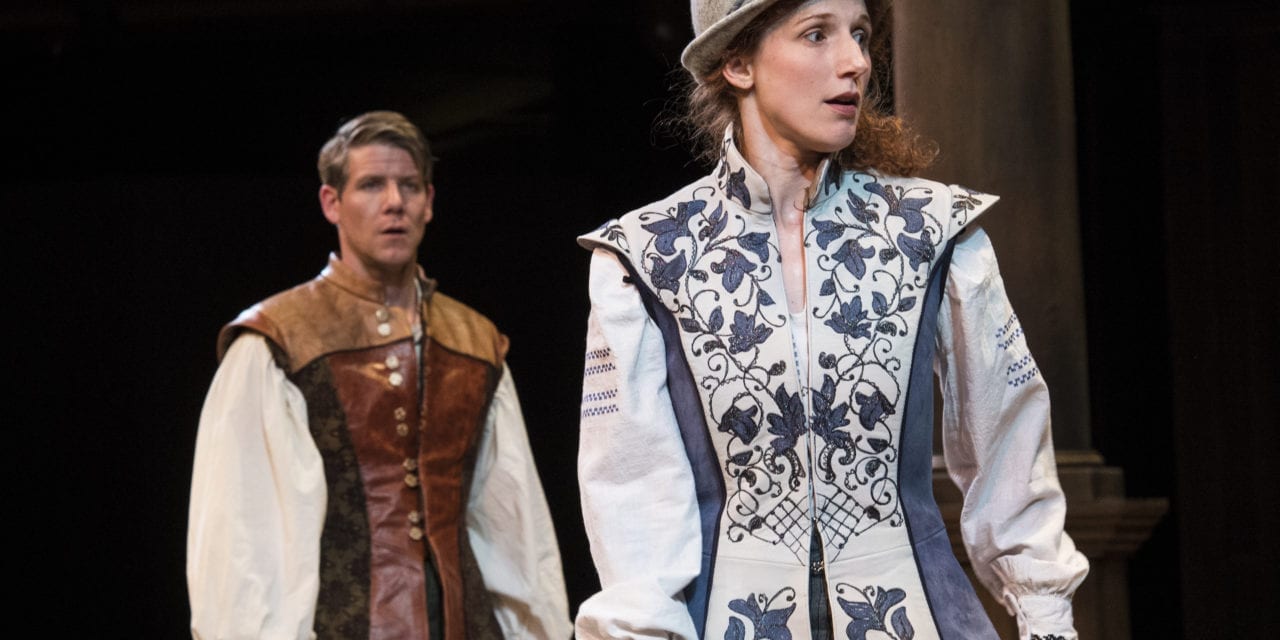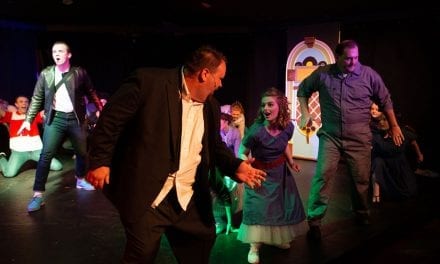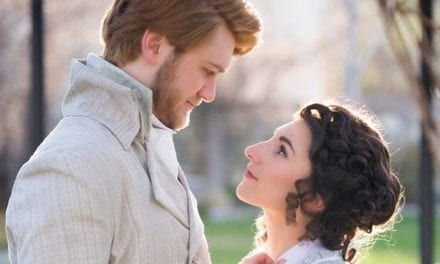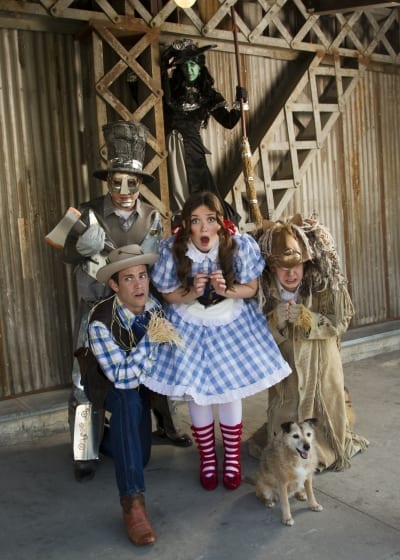CEDAR CITY — Often in Shakespeare‘s plays, people leave their home to attempt to escape their problems. As You Like It turns this idea on its head by forcing its characters into exile and having the dysfunction of human society recreated in the forest. Likewise, the Utah Shakespeare Festival’s initiative to produce every Shakespeare play makes As You Like It is part of the 2017 season, but despite the cast and crew’s attempts to create an light, frothy evening of theatre, they can’t escape from the unevenness of the script.

Show closes September 7, 2017.
As You Like It tells the story of young Orlando who is banished by the usurper Duke Frederick to the Forest of Arden. His newfound love, Rosalind, is the true duke’s daughter, and she chooses to follow Orlando into exile disguised as a boy named Ganymede. Duke Frederick’s daughter, Celia, also accompanies her. In the forest the two lovers meet, but Rosalind in her disguise is unrecognized by the lovesick Orlando. Rosalind tests Orlando’s love until she can bear the charade no more.
Though this is a beloved play in the Shakespeare canon, the script has consistently left me cold. Everything that Shakespeare does in As You Like It, he does better in other plays. For example, Touchstone is Shakespeare’s most uninteresting clown, and in every scene I found myself wishing for Autolycus, Launce and Speed, or Dogberry instead. Whether Touchstone is describing arguments and retorts, or reminiscing about his love, or engaging in repartee with the shepherd Corin (played by Jack Lafferty), the dialogue just doesn’t have the wit that makes Shakespeare’s comedy endure for four centuries. Jonathan Haugen tried to punch up the role with some tricks (such as reciting some lines very quickly), but these tactics rarely compensated for the bland script.

Jeb Burris (left) as Orlando and Cassandra Bissell as Rosalind. (Photo by Karl Hugh. Copyright Utah Shakespeare Festival 2017.)
Another Shakespeare trope that makes an appearance in As You Like It is the woman disguised as a man. But—again—the play is unable to successfully execute it. I have always thought that Orlando was a bit of a dolt for not recognizing his lover throughout their conversations together, but I have dutifully accepted the plot point. In this production, though, that suspension was particularly difficult because costume designer Lauren T. Roark did little to make Rosalind appear masculine. Dressed in leggings, a shirt, and a doublet, she still retained her hourglass figure, and Rosalind didn’t even bother to put her long hair under a hat in most scenes. As a result, Orlando looked like a full-blown moron for not recognizing that Ganymede was Rosalind in disguise (or a female in general).
But the greatest flaw in this production is the languid pace of Robynn Rodriguez‘s direction, which almost makes the play a “tedious homily of love.” After a rapid first act, the characters arrive at the Forest of Arden, where the pace becomes almost glacial as Rodriguez attempts to create a relaxed mood. The leisurely pace of the scenes started almost immediately (e.g., when Orlando meets Duke Senior) and made the play drag on far too long. Rodriguez also chose to add music (composed by Brandon Scott Grayson) to the play, which did little more than add to the running time, though the songs are lovely.

Cassandra Bissell (left) as Rosalind and Susanna Florence as Celia. (Photo by Karl Hugh. Copyright Utah Shakespeare Festival 2017.)
Jeb Burris played Orlando with charm, and the way Orlando flirted with Rosalind in their first meeting was unashamedly sweet. Burris played the vigorous Orlando of the first act well (with the wrestling match being a highlight of the evening), and he also excelled at being the lovesick youth for most of his time in the forest. The only weakness of Burris’s performance was the transition between the two sides of the character. By Act IV, I had almost forgotten the robustness that Orlando had shown at the beginning of the play. Burris’s Rosalind was Cassandra Bissell, who gave her character a thoughtful demeanor, most apparent in the matter-of-fact way that she explained to Celia (played by Susanna Florence) that she was going to follow Orlando into exile. Indeed, both Bissell and Celia gave their characters a refreshingly mature vibe, a decision that made the character’s decision to go to the forest seem much less flighty and impulsive than in most productions.

Eric Schabla (left) as Silvius and Kelly Rogers as Phebe. (Photo by Karl Hugh. Copyright Utah Shakespeare Festival 2017.)
A much more interesting romantic couple, though, was Eric Schabla as Silvius and Kelly Rogers as Phebe. The obvious conflict of I-like-her-but-she-doesn’t-like-me was a refreshing change from the unnecessarily convoluted relationship between Rosalind and Orlando. Plus, Schabla and Rogers created the funniest scene in the play when Phebe’s talks about her ideal man. This was the perfect setup for Schabla’s comedic reactions as Silvius wonders if he can match the description.
Still, there are aspects of this production that audience members will enjoy. The dark colors and buckled shoes in Roark’s costumes for Duke Frederick’s court made the actors look like they stepped out of a Rembrandt painting. And though I don’t find the script very funny, the stories of personal devotion are appealing. As You Like It is not a comedic classic, but the Utah Shakespeare Festival’s production is a nice addition to their Complete the Canon initiative.






